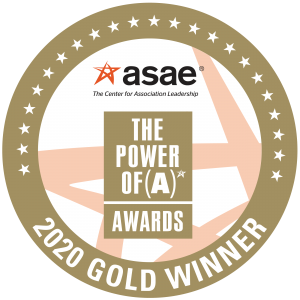Summer Institute for Faculty Development
Building on the Association of Schools and Colleges of Optometry’s major initiative to address its strategic objective of “Faculty Promotion and Development,” the Summer Institute for Faculty Development (SIFD) was established in 2006 for the purpose of “providing participants with an opportunity to gain the necessary knowledge and skills to enhance their success in an optometric academic environment as lifelong productive faculty, thus contributing to increased retention of faculty in the schools and colleges of optometry.”
This program attracts the most promising faculty from the schools and colleges of optometry who have been full time faculty members greater than 2 years but less than 10 years. The SIFD promotes active learning in a nurturing environment and is comprised of formal presentations, workshops and shared activities in the areas of teaching and learning, scholarship and academic culture. Each attendee develops a long-term career plan with specific goals, objectives and action strategies. Attendees are mentored in this process by the program leadership and other attendees.
What Faculty Had To Say About Prior Meeting:
“It significantly helped me with giving me the tools to get promoted. It also gave me guidance that has helped me become a better educator and researcher.”
“It gave me the tools navigate the world of academia which I had no experience with.”
“Extremely useful. Much better understanding of the profession and academia optometry after the SIFD.”
“I have a fantastic mentor with whom I still keep in touch.”
“Promotion.”
“It put me in contact with nationally recognized mentors who were able to impart their experiences in academia.”
“It great me better direction. It helped me learn what is and isn’t important in an academic career. It had a significant impact on my career thus far.”
The SIFD is being reformatted into a year-long program that includes virtual and in-person sessions. The in-person program will be held on July 10-13, 2022 in Fort Worth, Texas.
ASCO will begin accepting applications in fall 2021. Applicants must receive approval from their Dean/President prior to applying.
Please contact Helen Sauvage for additional details.
Key Program Offerings
ASCO Summer Institute for Faculty Development (SIFD)
PROGRAM OVERVIEW
Institute goals:
- Provide participants with an opportunity to gain the knowledge and skills necessary to enhance their success in an optometric academic environment as career-long, productive faculty members.
- Contribute to increased retention of faculty in the schools and colleges of optometry. The SIFD represents a major initiative by ASCO to address its strategic priority for “Faculty Promotion and Development.”
Targeted participants:
Colleagues who have been full time faculty members for greater than 2 years but less than 10 are the targeted participants. Approximately 45 total participants are anticipated. Each institution is assured of at least one faculty member participating, and that individual may be designated by the President/Dean. Other interested faculty members may complete the application process; all applicants must be approved by the institution’s President/Dean or their designee.
Participant application process:
The application period runs from September to November. Applicants will be required to submit an application, short biography, head shot, and CV (in a format preferred by their institution for promotion and tenure purposes). Materials will be reviewed and selected by representatives from the SIFD program committee.
Those accepted into the program commit to participate in a variety of pre- and post-Institute program activities.
Funding:
ASCO and multiple corporate sponsors have generously supported the SIFD; thus, the hotel and most of the meal functions are funded for participants. The schools and colleges are asked to fund the airfare, ground transportation, incidentals, and registration fee for all participants.
Three specific areas will be addressed:
1) Teaching and Learning,
2) Scholarship, and
3) Academic Culture
Keynote speakers and program facilitators will present topical areas for discussion. Formal presentations, workshops, small group discussions, and shared activities will comprise the Institute. Each attendee will develop a long-term career plan with specific goals, objectives and action strategies. Attendees will be mentored in this process by the program faculty and other attendees. The impact of the program upon each participant will be evaluated both at the conclusion of the program and over the ensuing year. Participation on the longer term outcome assessment is an obligation of all attendees.
Three specific areas will be addressed:
1) Teaching and Learning,
2) Scholarship, and
3) Academic Culture.
Keynote speakers and program facilitators will present topical areas for discussion. Formal presentations, workshops, small group discussions, and shared activities will comprise the Institute. Each attendee will develop a long-term career plan with specific goals, objectives and action strategies. Attendees will be mentored in this process by the program faculty and other attendees. The impact of the program upon each participant will be evaluated both at the conclusion of the program and over the ensuing year. Participation on the longer term outcome assessment is an obligation of all attendees.
Schedule:
Pre- and Post-Institute Webinars
Selected participants should be prepared to participate in pre- and post-Institute webinars. The schedule is still developing; however, at a minimum, the webinar listed below will be held prior to the program.
- Syllabus and Course Development
- Importance of course syllabus
- How to construct syllabus
- Writing student learning objectives
- Blooms adapted learning objectives
- Developing course to meet lecture hours for credit/lab
Summer Institute for Faculty Development
Academic Culture & Scholarship
- Finding Your Path in Academia (Panel)
- Academic Culture
- Clinical track versus tenure track
- Private school versus public school
- Promotion
- Governance
- Publishing
- Determine your audience
- Impact factor
- Citations
- Writing tips
- Submitting manuscripts
- Review process
- Responding to reviews
- Timeline
- Reviewing manuscripts
- Research
- Building a Research Question
- What is IRB?
- Participant-Mentor Program Meetings
Teaching and Assessment
- Using Process Oriented Guided Inquiry Learning (POGIL)
- Examine the POGIL framework and become familiar with the research literature that is relevant to graduate education
- Experience first-hand and develop ideas for using POGIL in your class
- Advancing Learning in Clinical Settings
- Explore key elements of effective precepting, including strategies for understanding students’ expectations and clarifying your own, building rapport with your students, and working with diverse individuals.
- Identify techniques for enhancing your students’ abilities to use critical-thinking and problem-solving skills to apply prior learning and new information when performing successful differential diagnoses.
- Practice tactics for giving students rich feedback to further advance their learning.
- Developing and Delivering Effective Presentations
- How to get in CE circuit
- How to entice participants
- How to make the presentation clear
- How to Write Effective MCQs
Test Construction and Item Analysis
- Proper construction of MCQ
- Create MCQ that target different cognitive levels
- Common flaws in construction of MCQ
- How to recognize a “good, poor performing, etc” MCQ item
- Specific examples
- Quality assurance for MCQ
- Participant-Mentor Program Meetings
Promotion and Tenure
- How to Build the Dossier
- Timeline in preparation
- Importance of writing the narrative
- What should and should not be included as evidence
- Who to list as references and why
- Mock Tenure and Promotion Panel Discussion: Review of Fictitious CVs
- Break-out Group Discussions: Suggestions to Enhance Your CV and Scholarly Portfolio
- Participant-Mentor Program Meetings
- Closing Reception
Meet SIFD's Program Leadership
Co-Chairs
Tiffenie Harris, OD, FAAO
Associate Professor, Western University College of Optometry
 Dr. Harris is an Associate Professor at Western University of Health Sciences, College of Optometry. She joined the faculty in 2008 and is the course leader for Principles and Practice of Optometry, teaching ocular health assessment skills in the anterior and posterior segment courses. In addition to the didactic teaching, Dr. Harris is actively involved in clinical education of 2nd and 3rd year interns while serving in the primary care module the Eye Care Center.
Dr. Harris is an Associate Professor at Western University of Health Sciences, College of Optometry. She joined the faculty in 2008 and is the course leader for Principles and Practice of Optometry, teaching ocular health assessment skills in the anterior and posterior segment courses. In addition to the didactic teaching, Dr. Harris is actively involved in clinical education of 2nd and 3rd year interns while serving in the primary care module the Eye Care Center.
Dr. Harris attended Indiana University where she received her degree in Chemistry in 1989 and graduated from Indiana University School of Optometry in 1993. After graduation, she moved to Southeastern Michigan and practiced primary care for over 10 years in the Detroit Metropolitan area. Her clinical experience includes working in a variety of urban practice settings including a multi-discipline medical center. The demographics of this community provided a wide diversity of challenging cases and a large amount of pathology to diagnose, treat, and manage.
In 2004, Dr. Harris began her career in academia at her alma matter as a Clinical Assistant Professor and Chief of Primary Care Clinics for 4 years.
Dr. Harris is a fellow of the American Academy of Optometry, has served on the Academy’s admissions committee, and has lectured numerous times at various Academy meetings. She has served as an examiner for the National Board of Examiners in Optometry and currently a remote examiner for NCCTO. She has also served on the ASCO clinical affairs committee along with the diversity and cultural competency committee. Her service continues as a member of the American Academy of Optometry, American Optometric Association, and the National Optometric Association. In 2008, Dr. Harris was reported to be the first optometrist to join the American Society of Hypertension.
Daniel Roberts, OD, PhD
Professor, Illinois College of Optometry
 Daniel Roberts completed his OD degree at the Indiana University School of Optometry and completed residency training in Hospital Based Primary Care Optometry at the VA Medical Center in Danville, Illinois. He has an MS degree in Clinical Research Design and Statistical Analysis from the University of Michigan’s School of Public Health, and he holds a PhD in Epidemiology from the University of Illinois at Chicago School of Public Health.
Daniel Roberts completed his OD degree at the Indiana University School of Optometry and completed residency training in Hospital Based Primary Care Optometry at the VA Medical Center in Danville, Illinois. He has an MS degree in Clinical Research Design and Statistical Analysis from the University of Michigan’s School of Public Health, and he holds a PhD in Epidemiology from the University of Illinois at Chicago School of Public Health.
He is a Professor and full-time faculty member at the Illinois College of Optometry and much of his time is devoted to clinical instruction and research. Previously he has held administrative positions at the College, including the Director of Community Based Education. He currently holds adjunct faculty appointments at the University of Illinois at Chicago’s Department of Ophthalmology and at the School of Public Health where he is a course instructor in epidemiologic methods. His primary research interests involve the study of pigmentary glaucoma syndromes, and he also studies diagnostic IR imaging techniques for pathology involving the iris.





